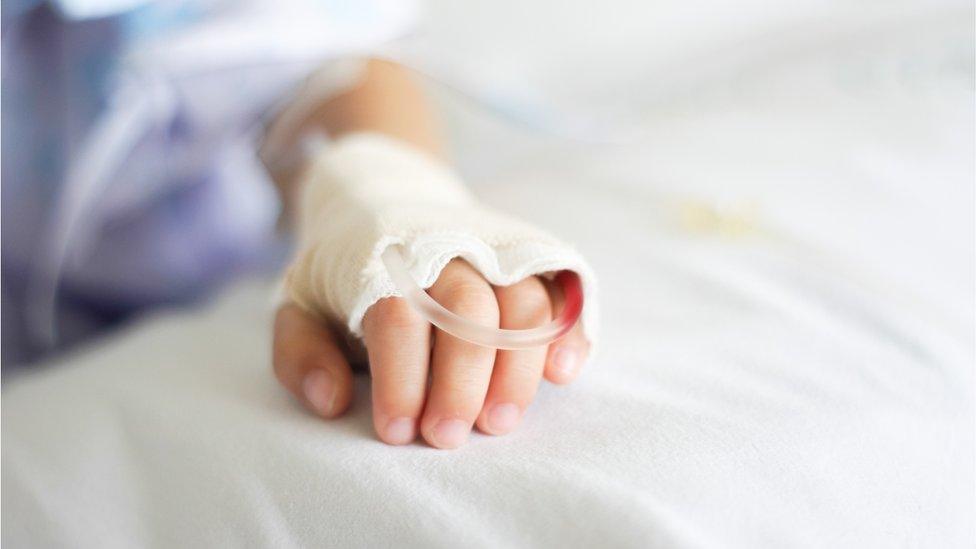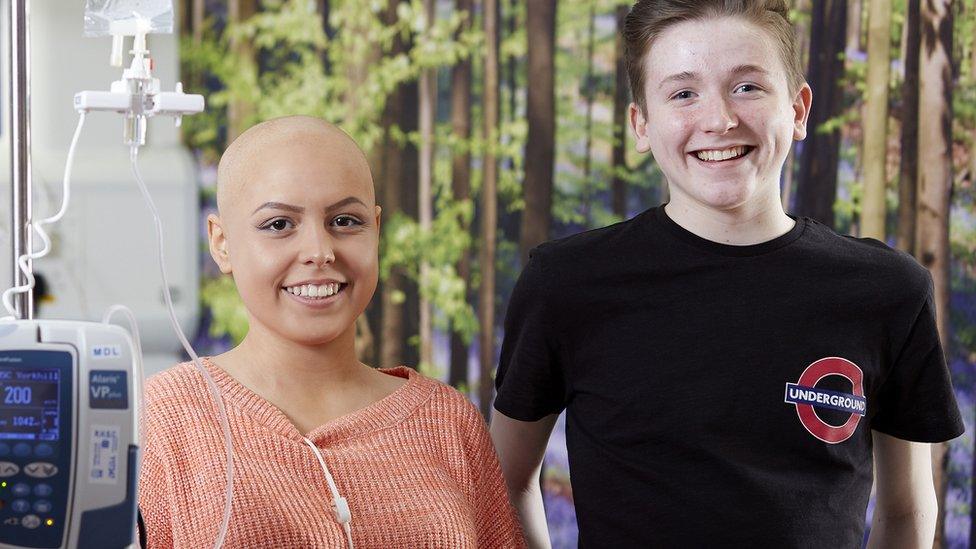Teenage cancer survival 'on the up' in England, report finds
- Published

Aggie is now working as a management consultant five years on from her cancer diagnosis
Survival rates for teenagers and young adults with cancer in England are improving, particularly for those with leukaemia and bone cancer, says a report by Teenage Cancer Trust and Public Health England.
But it found young patients living in poorer areas had lower chances of survival.
Understanding why this happens should be a priority, the charity said.
The report looked at data on 13 to 24-year-olds between 2001 and 2015.
Cancer in young people is rare, with fewer than 1% of all cancer cases affecting 13 to 24-year-olds.
That equates to 2,397 young people in England being diagnosed with the disease each year, based on figures for 2013 to 2015. Most occurred in 19 to 24-year-olds.
'Complete shock'
Aggie Kasicka was diagnosed with Hodgkin lymphoma when she was 20 and a second-year university student at University of Nottingham.
She felt relentlessly tired - but put it down to working hard for exams and juggling a part-time job.
"I'd be falling asleep at my desk and didn't have the energy to walk upstairs," she says.
When she was finally diagnosed, the news was a complete shock, but her approach was to keep going.
"It was two weeks before my exams, but I still went ahead and sat them - in isolation because of my immune system.
"The diagnosis made me study with a clearer head I think."
She then had six months of treatment and, at the end of it, went to Spain on her year abroad.

Aggie (left) wanted to keep going as normal when she was diagnosed with cancer aged 20
The recovery process was hard, she admits, and she now suffers from anxiety, but with the help of supportive friends and family, she has stayed positive.
Five years on, she is now working as a management consultant in London.
When the report compared five-year survival rates for those diagnosed between 2001-05 and 2007-11,, external it found they had risen from 83% to 87% for females and 80% to 84% for males.
In that time, the chances of teenagers and young adults surviving leukaemia had increased from 61% to 71%.
The survival rates of other common cancers among 13 to 24-year-olds had also improved, such as lymphoma (92%), bone cancer (63%) and carcinomas (84%).
This reflects an improvement in cancer survival in adults, which has doubled in the last 40 years in the UK.
However, teenagers and young people living in the least deprived areas had better survival chances - 88% - compared to those in the poorest areas - 84%.
And there were large regional variations in the number of young people with cancer - but this could be because of the differing size of populations in each area.

Although cancer death rates among young people have come down too - to 32 deaths per million young people - the report found a rise in the overall number of cases of cancer among 13 to 24-year-olds.
This could be because of a "dramatic increase" in cervical cancer diagnoses in young women aged 24 and a reclassification of some other cancers, the report said.
The figures were taken from Public Health England's National Cancer Registration and Analysis Service (NCRAS).
'More action'
Kate Collins, chief executive of Teenage Cancer Trust, said the improvements were down to teenagers and young adults being treated as a unique patient group, allowing them to access clinical trials and new treatments.
"This report makes a strong case for the importance of such services and for sustained funding of teenage and young adult specialist care into the future," she said.
"As more young people are diagnosed with cancer, more face an uncertain future where their life is put on hold at a time when it should just be getting started.
"We know that there are now more young people than ever before who need our specialist care and support."
But she said there was no time for complacency - just "even more action".
In NHS England's long-term plan announced recently, it set out plans to record the DNA of every child with cancer and give half of young people with the disease the opportunity to be part of a clinical trial by 2025.
- Published25 June 2017

- Published27 May 2016

- Published27 January 2014

- Published27 November 2018
